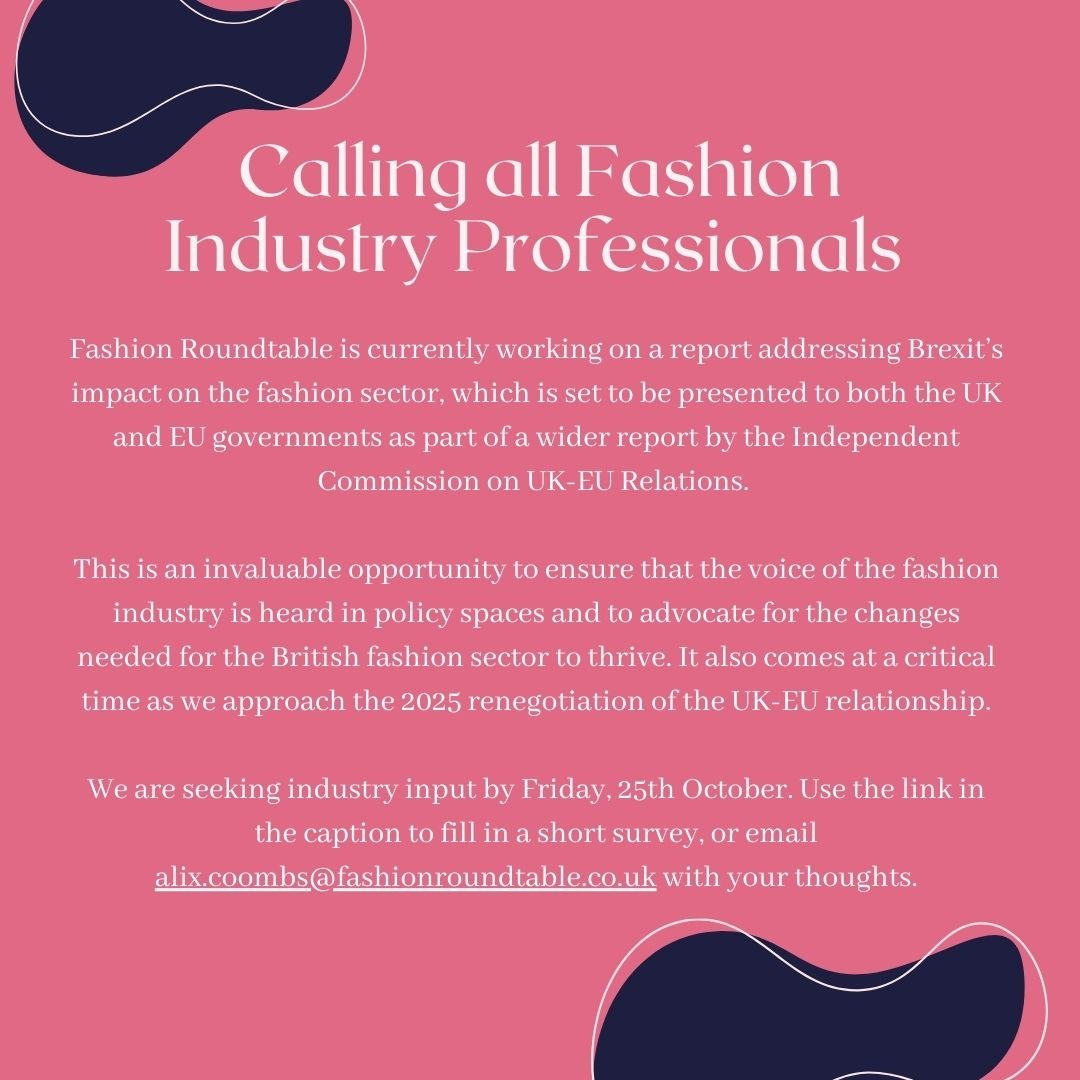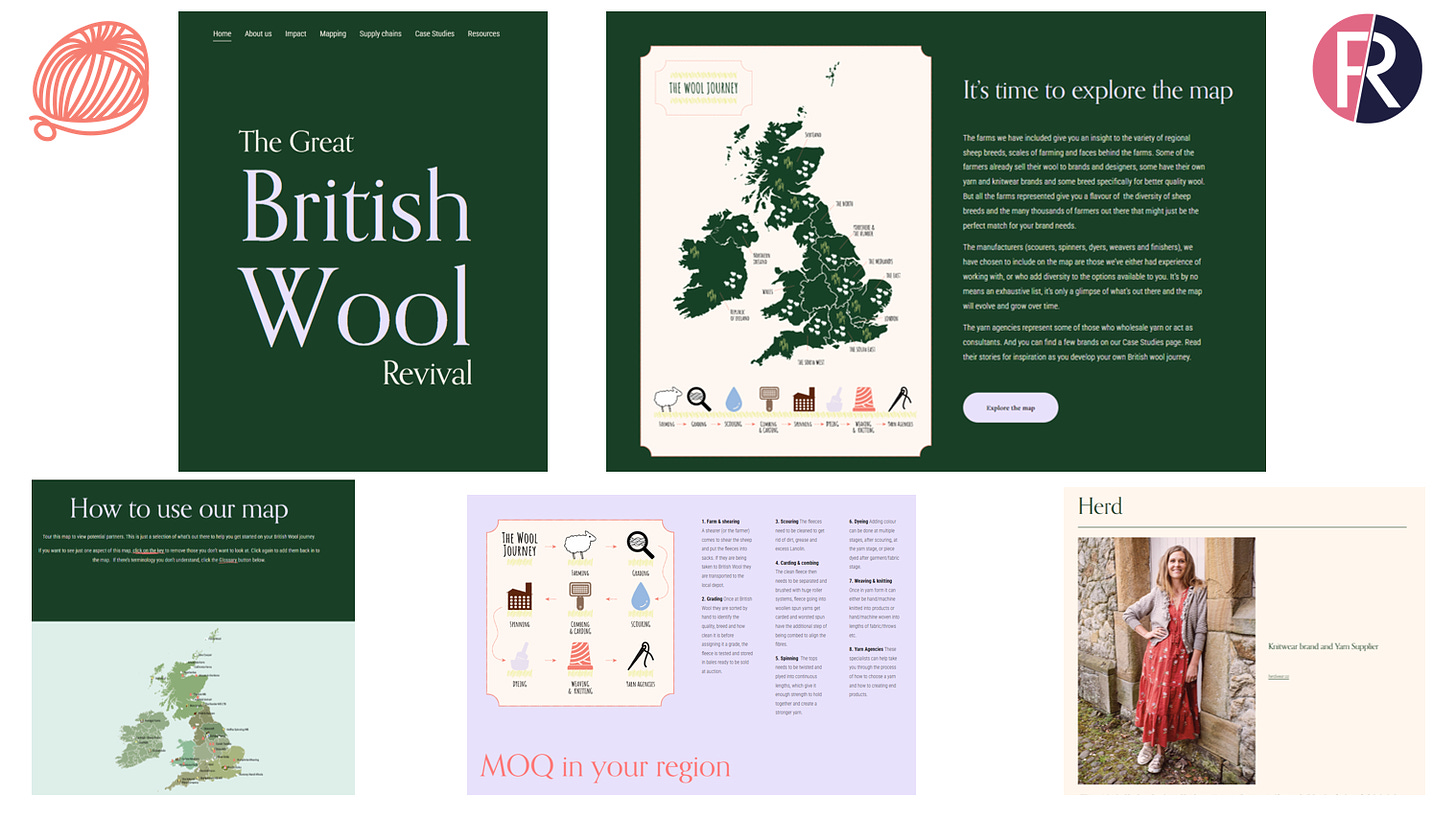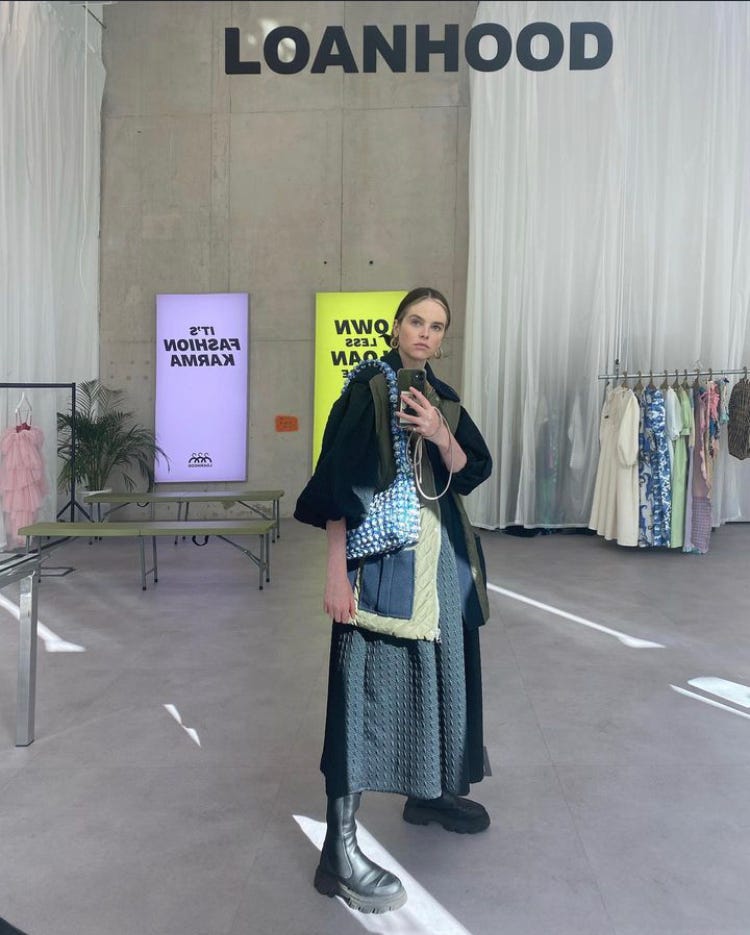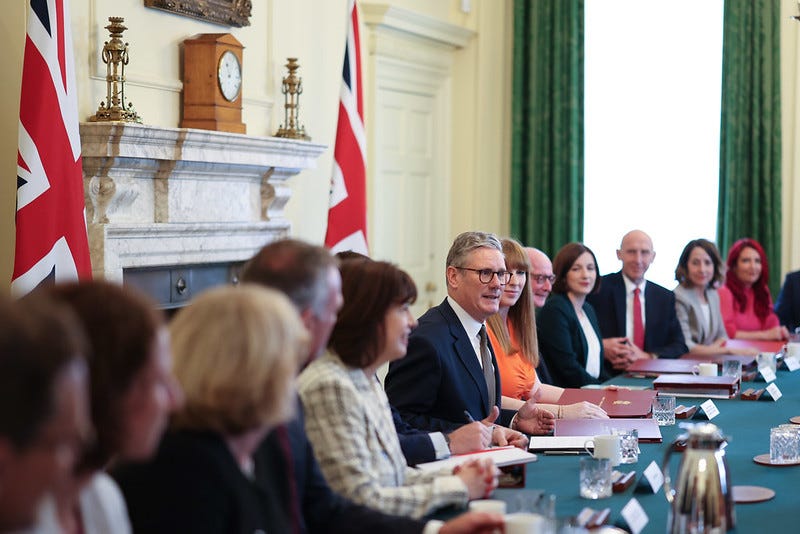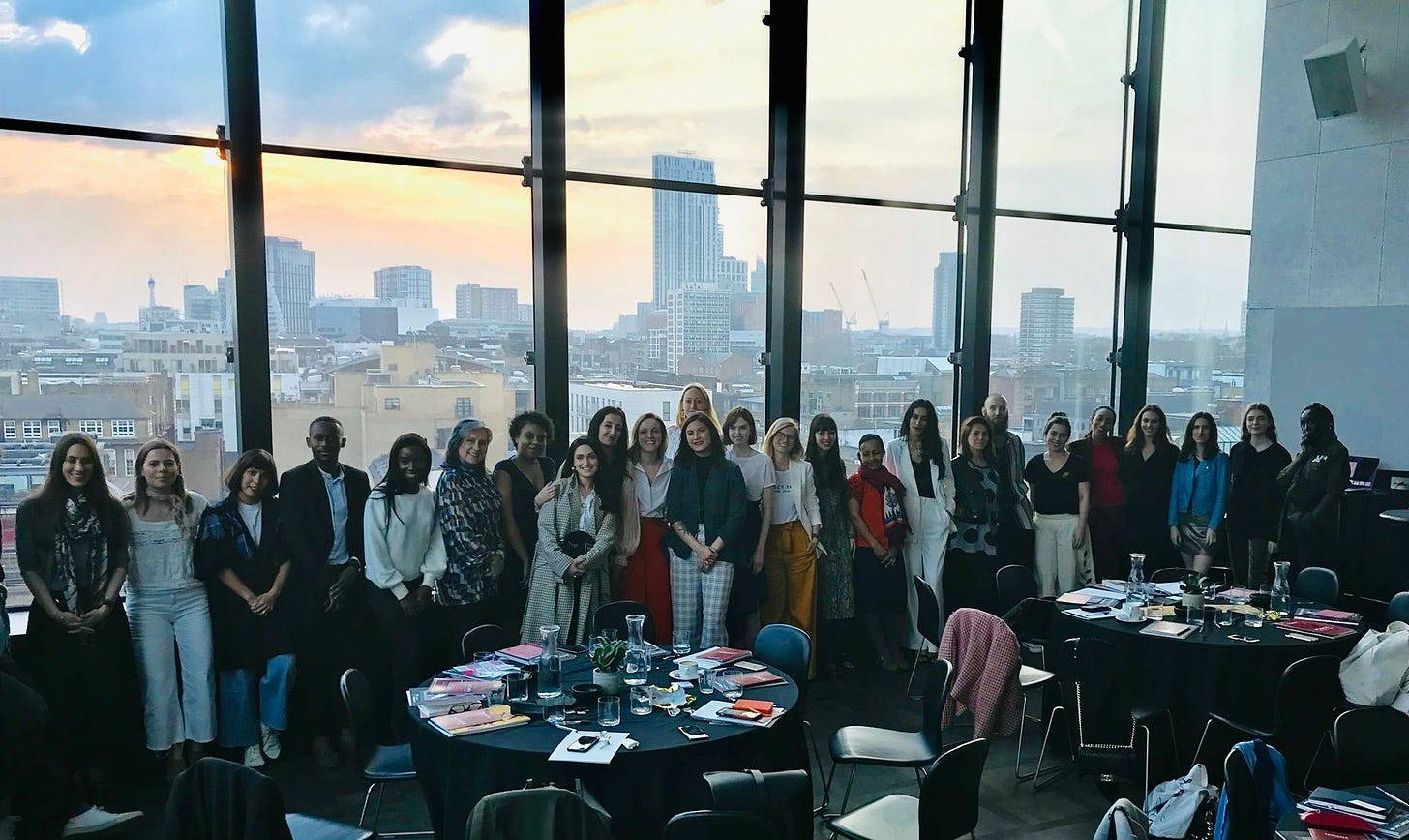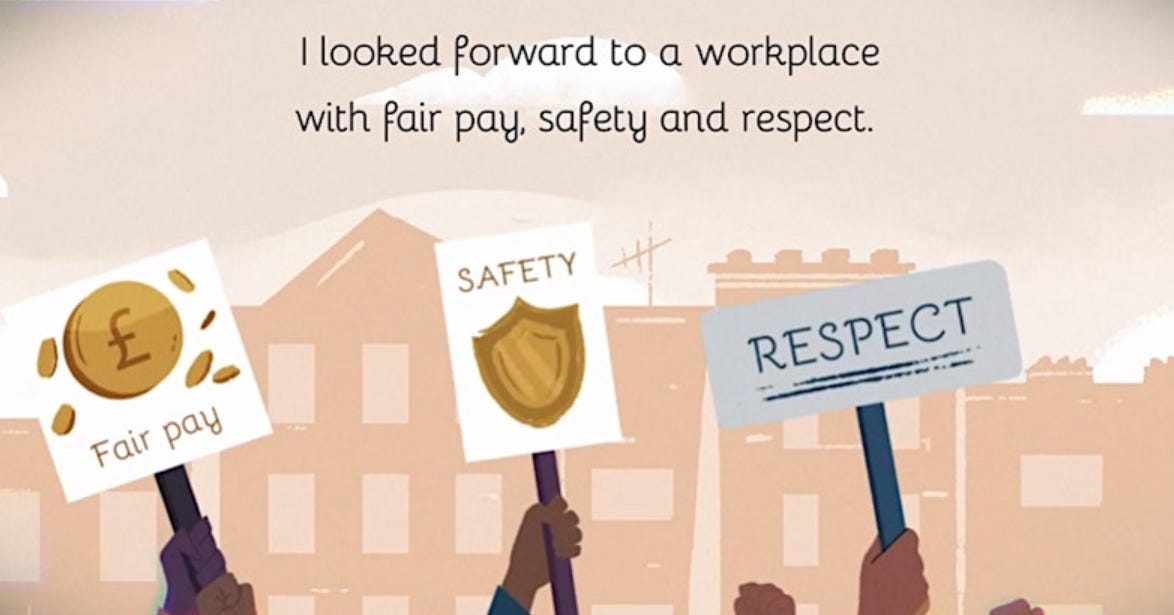Calling all Fashion Industry Professionals; we need your input!
Fashion Roundtable report addressing Brexit's impact on the fashion industry. PLUS: a crackdown on Greenwashing & Labour's first 100 days
Fashion Roundtable is currently working on a report addressing Brexit’s impact on the fashion sector, which is set to be presented to both the UK and EU governments as part of a wider report by the Independent Commission on UK-EU Relations.
This is an invaluable opportunity to ensure that the voice of the fashion industry is heard in policy spaces and to advocate for the changes needed for the British fashion sector to thrive. It also comes at a critical time as we approach the 2025 renegotiation of the UK-EU relationship.
We are seeking industry input by Friday, 25th October. Use the link here to fill in a short survey, or email alix.coombs@fashionroundtable.co.uk with your thoughts.
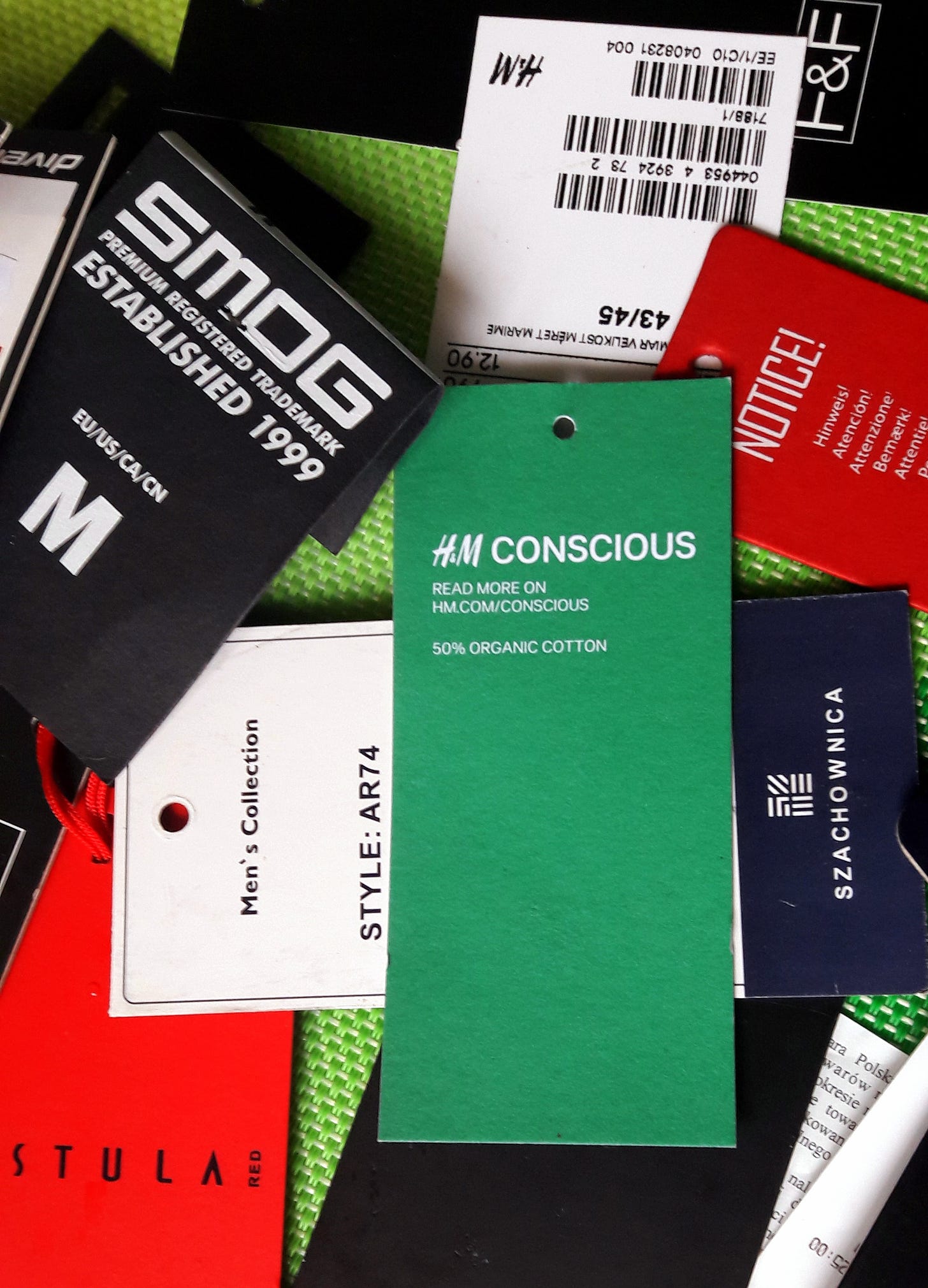
CMA’s New Guide for Fashion Brands: A Crackdown on Greenwashing and Misleading Environmental Claims
By Alix Coombs
The UK’s Competitions and Markets Authority (CMA) has ramped up its efforts to hold fashion brands accountable for greenwashing with a newly issued guide tailored specifically for the sector. Released in September 2024, Complying with Consumer Law When Making Environmental Claims in the Fashion Retail Sector provides a clear framework for fashion brands to ensure their sustainability claims are truthful, transparent, and backed by evidence. This initiative marks a significant milestone in promoting accountability and tackling deceptive marketing practices in an industry increasingly scrutinized for its environmental impact.
Combatting Greenwashing
As sustainability becomes a key driver of consumer behaviour, fashion brands are increasingly trying to capitalize on this demand by marketing themselves as eco-friendly, whether or not their claims are truthful.
The CMA’s new guide builds on the existing Green Claims Code to directly address this issue by outlining what fashion retailers must do to comply with UK consumer protection law when making environmental claims. It sets out clear expectations for businesses to avoid misleading consumers and helps to ensure that brands making genuine efforts toward sustainability are not overshadowed by those engaging in greenwashing.
Key Principles of the CMA’s Guidance
The CMA guide is built around six core principles that fashion brands must follow to ensure their sustainability claims are in line with consumer protection law:
Truthfulness: All environmental claims must be truthful and accurate. If a garment is labelled as "recycled," "organic," or "sustainable," it must genuinely meet the standards implied by these terms. Brands are advised to avoid overstatements, ensuring that the specific aspect of sustainability being promoted is clearly defined.
Evidence-based Claims: Brands must be able to substantiate their environmental claims with reliable evidence. This includes providing data or credible third-party verification to support any assertions about the sustainability of their products or practices. Without concrete evidence, brands risk breaching consumer law.
Clarity and Accessibility: Sustainability claims should be easy to understand and clearly communicated to consumers. Avoiding vague or broad language is key. Terms like "eco-friendly" or "green" without further explanation can be misleading. Consumers should not need to perform extra research to understand what makes a product sustainable.
Consideration of the Full Lifecycle: The environmental impact of a product should be considered across its entire lifecycle—from sourcing raw materials and manufacturing to its use and disposal. For example, a brand cannot claim a product is sustainable simply because it uses organic cotton, if the garment has a significant environmental footprint in other areas, such as water use during manufacturing or waste generated at the end of its life.
Comparative Claims: If a brand makes comparative claims (e.g., "more sustainable than previous collections" or "greener than our competitors"), these must be based on clear and verifiable comparisons. The differences should be specific and measurable, rather than vague or subjective.
Consistency Across Business Practices: Environmental claims should reflect the overall practices of the business. A brand cannot advertise one "sustainable" product line while engaging in unsustainable practices elsewhere in the business. The CMA calls for consistency to ensure brands present an accurate picture of their sustainability efforts.
Common Pitfalls for Fashion Brands
The CMA has identified several practices that could land fashion retailers in trouble under consumer law:
Selective Disclosure: Brands that highlight only the positive aspects of their environmental impact while ignoring the negative will face scrutiny. For example, promoting a product as made from recycled materials while ignoring the carbon emissions from the production process can mislead consumers.
Omnichannel Misalignment: When brands market themselves across different platforms, consistency in messaging is critical. The CMA warns against making environmental claims on social media or through influencers that are not aligned with the information provided on official websites or product labels.
Misleading Use of Certifications: The CMA cautions against using eco-labels, certifications, or buzzwords that could be misleading if they aren’t supported by the full context. For instance, a brand should not use a certification label in a way that implies the entire product meets the standard if only part of it does.
A Proactive Approach to Compliance
In addition to issuing the guide, the CMA has taken direct action by advising 17 well-known (but unnamed) fashion brands to review their business practices. These letters were sent to highlight concerns regarding the accuracy of their green claims, particularly focusing on the use of broad or ambiguous terms like “eco-friendly” or “sustainable” without providing clear evidence. The CMA also raised the issue of products being inappropriately included in so-called "eco" ranges without justifiable reasons.
These letters serve as a reminder to brands that misleading consumers can have serious consequences. With the upcoming Digital Markets, Competition and Consumers Act 2024, the CMA will soon gain strengthened enforcement powers. This new legislation will enable the authority to impose fines of up to 10% of a business’s global turnover if it is found to be in breach of consumer law.
The CMA’s warning is clear: businesses that fail to meet these standards could face severe consequences, making it imperative for fashion brands to audit their practices and ensure that all sustainability claims are honest, precise, and backed by solid evidence.
What Does This Mean for Fashion Brands?
Fashion brands must now take a proactive approach to ensure compliance with the CMA’s guidance. This will likely involve a comprehensive audit of current sustainability claims, ensuring that all marketing materials—from product labels and advertising to social media posts—accurately reflect a product’s environmental benefits.
Transparency will be critical moving forward. Brands that invest in authentic sustainability initiatives and provide clear, evidence-backed claims are likely to stand out in a market increasingly dominated by eco-conscious consumers. For those that fail to comply, the CMA has made it clear that the penalties for greenwashing could be severe, both financially and in terms of consumer trust.
Moving Toward Genuine Sustainability
Ultimately, brands must not only comply with the law but also strive to foster a culture of genuine sustainability. Only by embedding ethical and environmentally responsible practices into the core of their operations can the fashion industry begin to address its significant environmental challenges.
While there is a long way to go to seeing true sustainability permeate the ethos of fashion brands everywhere, this is a positive step in the right direction.
Fashion and Sustainability: The Journey Towards Reduction
In the light of the many on-going issues surrounding the fashion industry from sustainable practices to ethical futures, an exciting panel discussion took place at London College of Fashion. Chaired by TV presenter and historian Amber Butchart; guest speakers were Tansy Hoskins, an award-winning journalist and author who investigates the global fashion industry, Jade McSorley, Lecturer in Fashion and Sustainability (LCF) and co-founder of LOANHOOD (who also sits on the Fashion Roundtable Sustainability and Social Justice Committee), and Harriet Fletcher-Gilhuys, Slow Fashion, Wool and Textiles Researcher, Fashion Roundtable.
The aim of the panel was to gather together creative professionals who are building sustainable and ethical futures for the fashion industry. From addressing areas such as research spaces, consumer interventions and activism, every facet was discussed and interrogated to find a set of proposed solutions and invention points.
After a round of introductions and presentations about each speaker and the role they play in the industry, Amber launched a set of questions to delve into these areas in more depth, to strike discussion, criticisms and reflections.
Jade spoke about her involvement with the digital fashion space, from innovation to the ethical implications of AI, discussing how this can be both helpful but equally detrimental in terms of ownership and IP rights. She emphasised the importance of having a purpose for digital fashion, and that although it can be beneficial, this must be countered with a reason for why it is used and the deeper purpose.
Her love of fashion but her hate for the exploitative, destructive and unethical practices of the industry was raised, which led to the birth of her lifestyle service the clothes swap business LOANHOOD, which aims at addressing sustainable consumption habits and the stigma around wearing garments more than once.
Conversations continued around labour, exploitation and activism. Tansy spoke about her involvement with journalism, giving agency and voice to the voiceless, challenging current perceptions, and the importance of a living wage for workers: an area that is often overlooked when referring to sustainable and cyclical fashion systems.
The term sustainable fashion so often refers to the fibre, material or life cycle assessment but rarely includes the worker and their sense of living, ownership and purpose. We need to be paying workers a living wage that allows them to do their job, be respected and live their lives just as we do.
This led into greenwashing claims and labelling issues, something that is a constant confusion for the consumer. I spoke about the need for clearer transparency from brands, as many people want to buy better but often feel confused about where to start and who to trust.
This is particularly prevalent in the wool industry with many suppliers selling cones of yarn labelled ‘spun in the UK’ which suggests that the wool is British, however this is often an imported merino and synthetic blend that has been shipped to be spun and finished in the UK.
Labelling, if used correctly, is a strong and purposeful way to translate the provenance story to connect both the farmer, designer and consumer with the end product, something that I see regularly in the British wool industry.
This led into a talk about our recent project; The Great British Wool Revival, Funded by YOOX NET-A-PORTER and supported by The King’s Foundation as an extension of the Modern Artisan programme. This is an open source tool to connect farmers, designers and makers to support their understanding of, and working with, British wool. We have mapped and demystified the processes and value chain, even adding a terminology guide to ease confusion, simplify terms and allow designers to more easily work with wool from this country.
The closing question before opening the panel up to the final year students was around industry advice and how students and new designers can navigate this area within their creative careers.
We encouraged the students to find an area in the supply chain that excites them, an area to unpick and interrogate whether that be a fibre, dye process or garment worker rights and to focus on incremental change rather than trying to take on the whole industry.
The importance of getting started and being creative was running thread; to be mindful of the materials and dyes you are working with and to have an idea of the seed and source, to not be afraid to have a voice and speak up if something doesn’t quite seem right or make sense, as the industry works on a repetitive basis repeating the same unhealthy habits.
Change can only happen when collectively we address these issues and work together to build a more sustainable and ethical fashion industry for the future - something that I feel we can all relate to!
The panel formed part of a two week symposium for students in the School of Media and Communication at London College of Fashion to support their final year research projects. It was organised by the Cultural and Historical Studies Department.
Labour’s First 100 Days: A Mixed Start — With Hope on the Horizon
As Labour passes its 100-day milestone, the new government has managed to generate significant conversation. But for Britain’s creative industries, particularly fashion, the pace of change has been slow; the mood however in the creative sector—fashion included—remains of cautious optimism. Labour’s new government has made strides, with initiatives like the Employment Rights Bill and policies on housing and transport reform, but the creative industries still await more direct action. While the groundwork has been laid, there are critical gaps that need addressing if the sector is to fully thrive in the coming years.
Early Achievements—But for Whom?
Labour's first 100 days have not been devoid of action. Rachel Reeves, the Chancellor, tackled a £22bn gap in the country’s finances, halting a number of costly infrastructure projects. Meanwhile, Ed Miliband moved swiftly to remove the ban on onshore wind power and establish Great British Energy—an ambitious initiative geared towards greening the UK’s economy. On the transport front, the Labour government passed a rail nationalisation bill, signalling a new era for public transport. Similarly, housing minister Matthew Pennycook initiated renters' reforms, addressing issues like no-fault evictions.
But while these early moves signal progress, the creative industries have remained somewhat peripheral to Labour’s attention. With the workers' rights reforms being welcomed broadly, they still fall short of addressing the unique and immediate needs of the fashion and creative sectors. The challenges for these industries—especially in light of Brexit—have been left largely unaddressed.
Employment Rights Bill: A Game-Changer for Creatives?
Labour’s Employment Rights Bill is one of the key pillars of their reform agenda. Touted as the most comprehensive update to UK employment law in decades, it promises significant benefits for those in precarious employment—many of whom populate the creative and fashion industries. From day-one rights for sick pay, maternity leave, and unfair dismissal protections to the end of exploitative zero-hours contracts, the bill introduces measures that could reshape working conditions in the sector.
The fashion industry, in particular, stands to benefit from the legislation’s potential to stabilise working conditions. 84% of workers on zero-hours contracts, for example, would prefer guaranteed hours, according to TUC research. With zero-hours contracts prevalent in fashion retail and production roles, this reform could help fashion professionals enjoy more predictable and secure incomes. However, the delay in full implementation until 2026 leaves freelancers and part-time workers wondering if these promises are, for now, only on paper.
Moreover, the fire-and-rehire practices that have plagued the gig economy will finally be addressed. For creatives juggling multiple gigs, this marks a step towards fairness, offering greater security. Yet, practical challenges remain. Will these protections actually be enforced? Or will loopholes emerge, allowing businesses to sidestep reforms, leaving the creative workforce vulnerable?
The introduction of statutory sick pay from day one is a welcome move. Fashion workers, especially freelancers, face erratic incomes, and the inability to earn when ill is a significant concern. This reform could bring much-needed financial relief. Similarly, parental and bereavement leave available from day one will positively impact working parents in the creative sector, who often struggle to balance family and professional life.
Practical Limitations of the Bill
Not all of Labour’s proposals have been received with unanimous praise. The statutory probation periods, intended to provide businesses flexibility in assessing new hires, have caused concern within creative industries, where short-term contracts dominate. Will probation periods allow employers to sidestep day-one protections? Could this measure, meant to offer flexibility, perpetuate the insecurity it claims to solve?
Labour’s promise to make flexible working the default unless an employer can prove otherwise is a step in the right direction for the creative sector. Designers, stylists, and creative freelancers often rely on flexible working patterns. Enshrining this into law may make it easier for professionals to strike the work-life balance they need. However, questions remain about how these new rights will be enforced, particularly in industries as fluid as fashion.
The Brexit Conundrum Still Overshadows the Sector
For all its early momentum, Labour has yet to fully tackle the Brexit-induced challenges facing the creative industries. The fashion sector, in particular, has suffered due to restricted movement, trade barriers, and a reduced pool of talent. Exports of clothing and footwear sold to EU countries continue to plummet, with many designers, suppliers, and creative professionals hampered by cumbersome customs regulations.
Fashion’s reliance on international mobility is not just a luxury but a necessity. Designers need access to European markets for production, collaboration, and trade. While Labour has voiced intentions to reset relations with the EU, more needs to be done to alleviate the burdens on creatives who depend on a seamless flow of goods and talent.
Without specific sector-driven policies to facilitate international mobility and ease trade restrictions, the industry will continue to face significant challenges. Labour must make good on its promises to support Britain’s world-renowned creative sector and implement targeted reforms that address these post-Brexit hurdles.
Fashion is a global industry, thriving on international collaboration and mobility. Whether showcasing at Paris Fashion Week or working with suppliers in Italy, the creative sector needs unrestricted access to Europe. Labour’s initial forays into repairing UK-EU relations are promising, but the lack of sector-specific policies is holding the industry back from reaching its full potential.
A Recent Win for Film—A Positive Signal for Creatives?
Last week’s announcement of a tax relief boost for independent film productions is a glimmer of hope for the wider creative industries. Confirmed just days before Labour’s 100-day milestone, this new Independent Film Tax Credit will provide a 53% tax relief for productions costing up to £15 million. This could be a game-changer for Britain’s independent filmmakers, with the potential to generate jobs, attract international co-productions, and drive significant economic growth.
While this announcement specifically benefits the film industry, it serves as a positive sign for other creative sectors, including fashion. If the government can support filmmakers in this way, there is hope that similar targeted relief could be on the horizon for the fashion industry, which is grappling with its own set of financial challenges.
The tax credit not only highlights Labour’s commitment to fostering homegrown talent but also signals that the government understands the creative industries’ potential to drive cultural and economic growth. As Chancellor Rachel Reeves said, “The creative industries are a crucial part of our economy,” and the hope now is that this support will soon extend more fully to fashion and other creative sectors.
Looking Ahead: Time for Decisive Action
Labour’s first 100 days have been a step in the right direction, but for fashion and the wider creative industries, much work remains to be done. The next 100 days will be crucial in determining whether Labour can deliver on its promises. Will the government finally address the specific needs of creatives, or will the sector continue to grapple with the challenges left in Brexit’s wake?
The government’s recent boost for independent filmmakers offers a glimmer of hope. Here’s to keeping spirits high in the fashion industry and other creative sectors as we push for the targeted policies and reforms needed to help British creativity flourish once again. The road ahead is long, but with Labour’s continued focus, the creative industries might just find their place at the heart of Britain’s economic recovery.

Labour’s International Investment Summit: Setting the Stage for the Next 100 Days
by Michelle Kazi
The UK government’s International Investment Summit on 14 October 2024 marked a pivotal moment, securing a record-breaking £63 billion in private investments and nearly 38,000 jobs. Prime Minister Keir Starmer emphasized that economic growth is central to the government's mission, with significant investments across sectors like tech, renewables, and life sciences. This represents a vital step in the UK’s ambition to lead the G7 in economic growth.
Key investments included £6.3 billion for AI-enhancing data centres, £24 billion by Iberdrola for renewable energy projects, and £1.1 billion from Manchester Airports Group to expand Stansted Airport. These moves highlight the government's commitment to creating a pro-business environment, reducing regulatory barriers, and supporting long-term industrial strategy.
For the fashion and creative industries, this summit signals an optimistic future. The focus on investment and innovation is crucial for our sector, which relies heavily on global collaboration, tech development, and creative growth. With new investments into data centres and AI, we can anticipate advances in fashion technology, boosting design, retail, and manufacturing processes. Furthermore, by increasing confidence in the UK’s economy, this summit has the potential to draw more international attention and investment into our sector, particularly through sustainable fashion and innovative retail solutions.
As the Prime Minister declared, "It’s time to back Britain." For the fashion industry, this is an opportunity to harness the momentum of government-backed growth and innovation, pushing for policies that promote sustainability, international mobility, and support for the creative economy. Here's to a future where the fashion industry thrives alongside the broader UK economy.
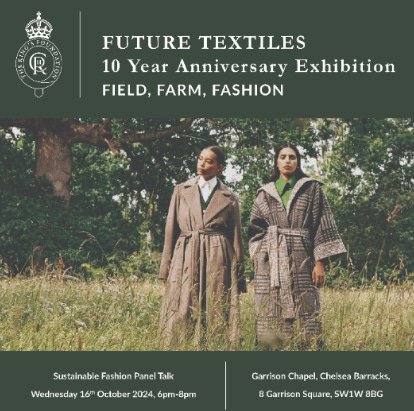
Event tomorrow: Future Textiles -10 Year Anniversary Exhibition - Sustainable Fashion Panel Talk, 16th October 2024, London
Our Wool and Textile Researcher, Harriet Fletcher-Gilhuys, joins tomorrow’s panel at the King's Foundation Future Textiles 10 Year Anniversary Exhibition for what promises to be a lively and informative Sustainable Fashion Panel Talk.
The event takes place tomorrow, Wednesday 16th October, at the Garrison Chapel in Chelsea from 6pm - 8pm.
Call for Expressions of Interest for Joining the Sustainability & Social Justice Committee
The Sustainability & Social Justice Committee (S&SJ) Committee is set up to gather the knowledge and expertise of a range of individuals working in the industry, to feed into Fashion Roundtable's (FR) work in their role as the secretariat for the APPG on Ethics and Sustainability in Fashion. The committee advises, reviews, gathers evidence, and contributes to FR’s reports, communications and advocacy work.
The committee is currently a team of 5 volunteer members and are looking for up to 10 additional volunteer members to join for the beginning of the new year.
How the committee works together
The committee meets quarterly (January, April, July, October) on the last Thursday of the month online, over lunchtime
Each meeting will focus on one or more of the identified agenda points
Between quarterly meetings the committee will gather information on the agenda points and then we will use the meetings themselves to review and consolidate our advice and feedback for FR
In between meetings we respond to enquiries from FR, approaching specific members of the committee based on their expertise. Smaller working groups can set themselves up at any point to further work on specific points
For any committee members attending FR events in person in London, we could aim to build in small catch ups afterwards to reflect on the event and its relation to our agenda points
Criteria for members
For those wishing to join the committee, please read the criteria below before expressing your interest:
Interest/knowledge in UK policy is required. Knowledge on EU policy is also of interest to the committee but not essential.
Expertise in the field of sustainable fashion and/or social justice within the fashion sector. We are aware this is quite broad, so please outline your expertise and interests within the form below.
Must be able to attend quarterly meetings and contribute some time to policy work between meetings. We appreciate this is a voluntary role and changes may need to be made to accommodate work schedules, but we are looking for committed members who are able to make the effort as much as possible.
Current Committee Priorities
We are currently working on the priorities highlighted below from the FR’s 2024 manifesto for Delivering a Sector Vision.
The UK committing to Extended Producer Responsibility (EPR) to support the transition of the industry’s annual carbon footprint of 3.3 billion tonnes of CO2e to Net Zero by 2050.
Greater support for onshoring and investment in UK textile manufacturing and support for the UK as a place of decent work for garment workers.
Regenerating high streets to support UK businesses and protect local communities.
Food and fibre sovereignty.
You can find the application form here. If you have any questions, please reach out to laura.j.gibson@icloud.com. Good luck and we look forward to reading your application.
Team S&SJ
Event: Black Fashion Talks, 17th October 2024, ExCel London
Dive into the world of fashion and entrepreneurship at Black Fashion Talks, on 17th October 12pm to 4pm during UK Black Business Week 2024. Join influential voices in the fashion industry for dynamic discussions, valuable insights, and a celebration of Black excellence in style. From trends to business strategies, this event offers a platform to connect, learn, and be inspired by the creativity and innovation in Black fashion.
Who is this for?
We invite anyone interested in pursuing a career in fashion. Regardless of your race this is a fantastic session for you to attend.
What you will get?
Your ticket will give you access to inspirational talks, seminars and workshops delivered through the evening.
Speakers
Emile Vidal Carr| Patrick Adjaye | Kathryn Burn | Mercedes Benson
Event: Anti-Slavery Day 2024: The stories we wear: garment worker perspective, 18th October 2024
A live private screening of the film 'The stories we wear' and panel discussion about modern slavery in the fashion supply chain, Friday 18th October 9:30am - 11:30am
This event is a must-attend for those passionate about human rights and ethical fashion. Join GCU lecturer Erica Charles for a thought-provoking screening and panel discussion that addresses the lived experiences of garment workers in Leicester. Hear from experts and activists as they share their insights into what is a very complex topic.




